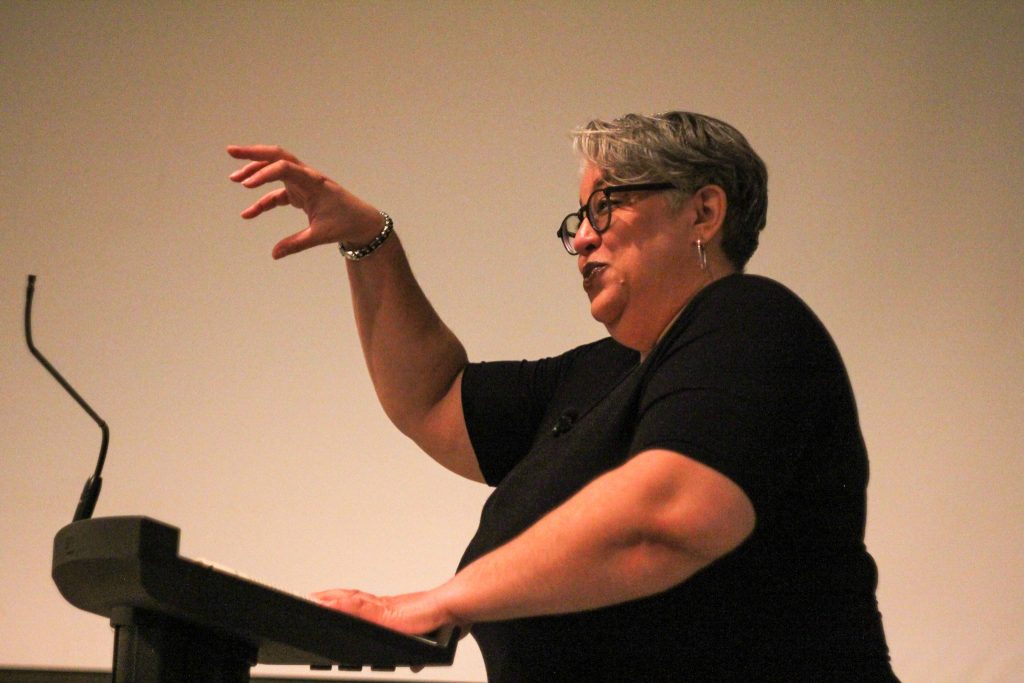Binghamton University welcomed back Tara Betts, ‘14, into its midst for a night of poetry and reflection last Friday. Betts, who graduated from BU with a Ph.D. in English, read poems from her new poetry collection “Refuse to Disappear.”
“Refuse to Disappear” is the collection Betts began to write shortly after she left Binghamton in 2014. The new collection was influenced by a period of time in her life that was difficult, and what came of it was a robust collection of poems that she read out to the mesmerized crowd.
Since graduating, Betts has been a freelance writer, lecturer and editor. She has been a visiting lecturer at the University of Chicago since 2015 and has been bouncing from place to place, teaching different groups of people poetry. Betts has hosted and managed the readers series Literati at Binghamton, which still operates today. She has even spent three years working at Statesville Prison teaching prisoners poetry and writing, which inspired her poem “Small Illuminations.”
She has worked with writers in Chicago, Washington D.C. and New York City. In every community Betts has found herself in, she has left her mark. One thing that Betts stresses is not setting writing goals that are too high.
“I always tell my students don’t worry about writing every day,” Betts said. “Don’t worry about writing five pages every day. I think that’s a lot of pressure to put on yourself.”
When arriving back on campus, Betts was welcomed back with open arms by friends and students of the University.
From the moment she began reading her first poem, “Untitled for a Reason,” the audience was captivated. Betts has an ability that not many writers have — bringing her work to life with her voice. Betts’ writings are not just about her life experiences, as she has described herself as a “poet of place,” which she described as being a person who is influenced not just by the places she loves but by all the things in life that one finds influential. From the cities she has lived in to the music she loves, Betts does not discriminate. She is able to find inspiration for her poems in different ways.
“Sometimes I see it right away,” Betts said. “Or I hear a line in my head, or I see a picture and I’m like oh God, that’s it, I’m going to write.”
Each poem she read had a detailed backstory that included not only why it was the inspiration for writing the poem, but also why it was essential for Betts to write about it. Betts is a treasure trove of stories and history that has influenced every person she has come across.
In “What Bucks or Breaks,” Betts spoke about bravery saying, “who needs a trap woven from a promise?” and in her poem “High Fidelity,” she spoke about her love for the city of Chicago, as well as the feeling people begin to feel when they begin to reassess life after a major life change. This feeling was reflected in the line, “we wait to put the needle to their etched curves, to rewind in a deck or twist in a pencil, so that song plays, maybe go back, find more,” evoking gasps from the audience followed by a loud string of applause.
During her readings, Betts captured the audience time and time again. With each backstory to the poem she was about to read, she gave the poem life and sincerity that one could not simply get from reading the poem on paper.
Betts also gave advice to young, aspiring writers.
“The thing you are scared to write about you should lean into it,” Betts said. “Because I can guarantee you somebody else feels the same way.”



